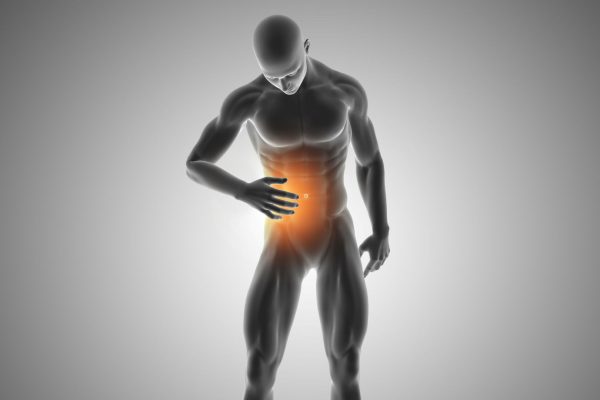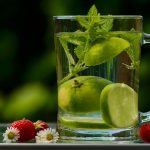There was a time when you didn’t have to think much about your liver—unless you were a heavy drinker or had hepatitis.
But those days are long gone.
Today, one of the biggest threats to your liver doesn’t come from alcohol. It comes from something millions of people use every single day to ease their aches and pains… something you probably have in your medicine cabinet right now.
I’m talking about acetaminophen, the active ingredient in Tylenol®. This over-the-counter drug…
✅ Is the #1 cause of acute liver failure in the U.S.
✅ Has become the leading cause of liver transplants worldwide
✅ Can damage the cells in your liver over time, even in small daily doses.
⚠️A Dangerous Daily Habit?
You’d expect problems from taking a huge dose of Tylenol. But the truth is, even small daily doses—especially when taken over time—can harm your liver.
And if you take it with alcohol in the hopes of preventing a hangover – or in higher than recommended doses for several days, you could wind up in the ER with severe liver toxicity or, worse, a coma.
It doesn’t seem possible that a drug sold over the counter could have such dire consequences. Yet accidental overdose of acetaminophen has been a problem for decades.
💥💥Double Trouble! Tylenol PM.
And by the way. If you think you’re safe because you’re using it “properly,” think again. Tylenol PM® is a perfect example.
This is a combination of acetaminophen and Benadryl®. People take if for aches and pains, and the Benadryl® makes them drowsy, which helps them sleep.
Unfortunately, people who have been taking this for a decade or more have a greater risk of not only liver issues from the Tylenol®, but also a higher risk of dementia because of the diphenhydramine in the Benadryl®. And if you also take acetaminophen during the day, you’re just asking for liver problems!
Sadly, acetaminophen is not the only “safe” drug that can destroy your liver function. Many everyday drugs—including NSAIDs, statins, and certain antibiotics—can stress or damage your liver, especially when combined with poor diet or alcohol.
🧁Is Sugar Helping to Wreck Your Liver?
Beyond meds, your diet plays a massive role in liver health.
Added sugars are now linked to the rise of non-alcoholic fatty liver disease (NAFLD)—a condition that affects nearly one in two adults and is now the second most common cause of liver transplants in the United States.
The average American eats over 150 pounds of sugar a year—and it’s not just in candy and soda. You’ll find added sugars hiding in:
- Fruit juices & sports drinks
- Bottled teas & vitamin waters
- Granola, energy bars & cereals
- Condiments, sauces, even “whole grain” breads
Too much sugar creates fatty acids in your liver—leading to dangerous fat accumulation and eventual disease.
❤️4 Ways to Love Your Liver
You can protect your liver—and ease pain naturally—without risking your health.
🥗 Eat an anti-inflammatory diet.
Skip sugary, fried, and processed foods. Avoid inflammatory triggers like dairy, whole grains, farmed fish, omega-6 oils, and conventional red meat.
Instead, focus on organic, plant-based foods that help reduce inflammation and protect your liver from fatty build-up.
🏃♀️ Move your body.
Physical activity lowers fatty acid production and protects liver cells. Plus staying active will actually help reduce pain and increase your flexibility in the long-run. Any type of movement, no matter how small, can help. Walk, swim or try water aerobics. Ride a bike. Sign up for yoga, tai chi or Pilates.
🌿 Try liver-friendly curcumin.
Curcumin (from turmeric) is a powerful anti-inflammatory that works as well as some NSAID pain relievers to conquer your aches and pains. Plus, it helps protect you from – and treats – liver disease.
🍷 Rethink your alcohol habits.
It takes less than you think to trigger liver problems—especially if you’re also taking medications like acetaminophen.
Your liver has over 500 vital functions within the body. So it helps you LIVE! I guess that’s why they call it the LIVE(r).
SOURCES:
Agrawal S, Murray BP, Khazaeni B. Acetaminophen Toxicity. [Updated 2025 Apr 10]. In: StatPearls [Internet]. Treasure Island (FL).
Yoon E, Babar A, Choudhary M, Kutner M, Pyrsopoulos N. Acetaminophen-Induced Hepatotoxicity: a Comprehensive Update. J Clin Transl Hepatol. 2016;4(2):131-142.
Lee WM. Acetaminophen Toxicity: A History of Serendipity and Unintended Consequences [published correction appears in Clin Liver Dis (Hoboken). 2021 Feb 28;17(2):96]. Clin Liver Dis (Hoboken). 2020;16(Suppl 1):34-44.
DiNicolantonio JJ, Subramonian AM, O’Keefe JH. Added fructose as a principal driver of non-alcoholic fatty liver disease: a public health crisis. Open Heart. 2017;4:e000631.
Clinton CM, O’Brien S, Law J, Renier CM, Wendt MR. Whole-foods, plant-based diet alleviates the symptoms of osteoarthritis. Arthritis. 2015;2015:708152.
Li HY, Gan RU, Shang A, et al. Plant-Based Foods and Their Bioactive Compounds on Fatty Liver Disease: Effects, Mechanisms, and Clinical Application. Oxidative Medicine and Cellular Longevity. 2021; 2021:6621644.
van der Windt DJ, Sud V, Zhang H, Tsung A, Huang H. The Effects of Physical Exercise on Fatty Liver Disease. Gene Expr. 2018;18(2):89-101.
Farzaei MH, Zobeiri M, Parvizi F, et al. Curcumin in Liver Diseases: A Systematic Review of the Cellular Mechanisms of Oxidative Stress and Clinical Perspective. Nutrients. 2018;10(7):855.
Shep, D., Khanwelkar, C., Gade, P. et al. Safety and efficacy of curcumin versus diclofenac in knee osteoarthritis: a randomized open-label parallel-arm study. Trials. 2019;20:214 .
Eke-Okoro, UJ, Raffa, RB, Pergolizzi, JV, Breve, F, Taylor, R, For the NEMA Research Group. Curcumin in turmeric: Basic and clinical evidence for a potential role in analgesia. J Clin Pharm Ther. 2018; 43: 460– 466.


